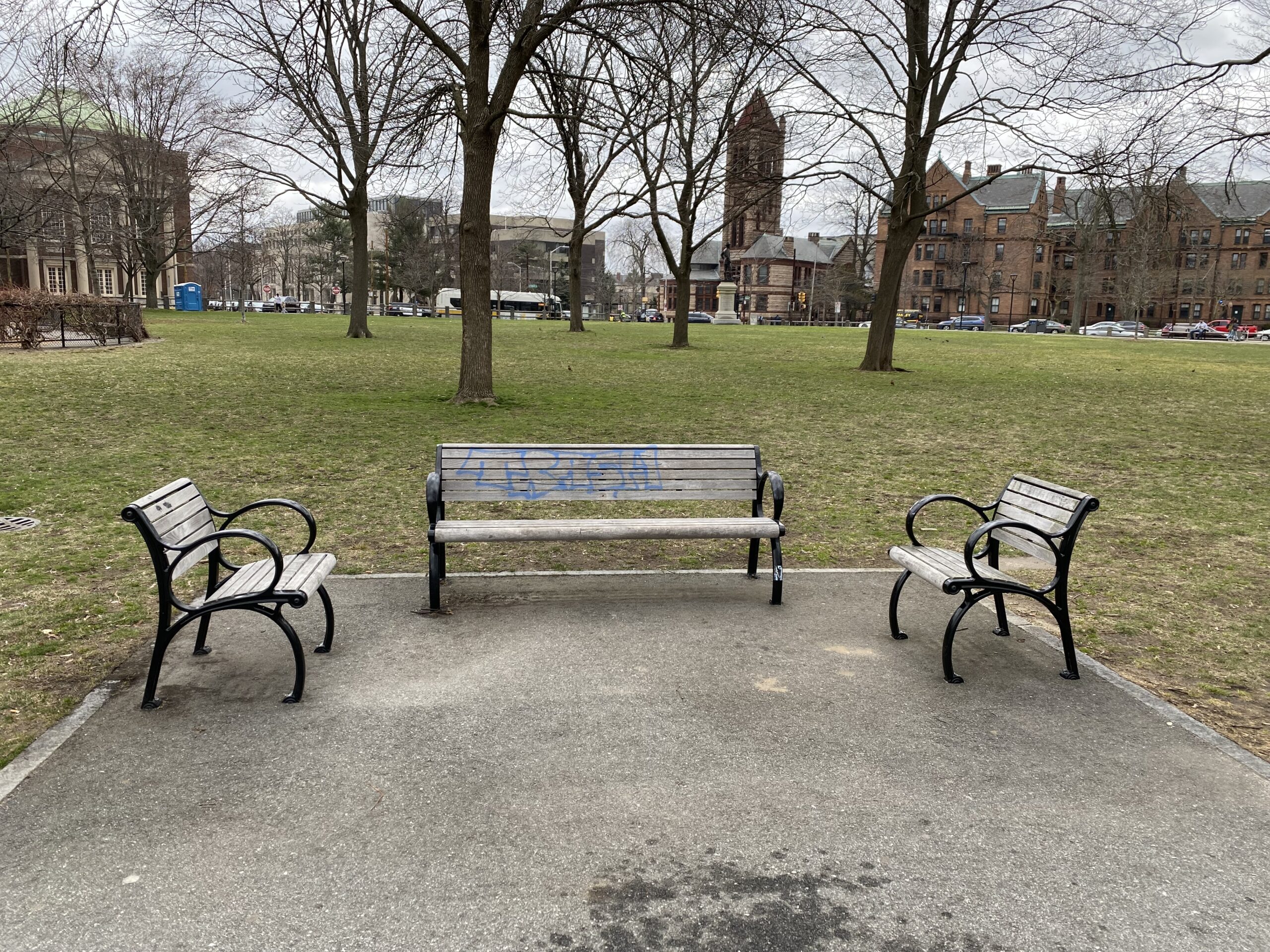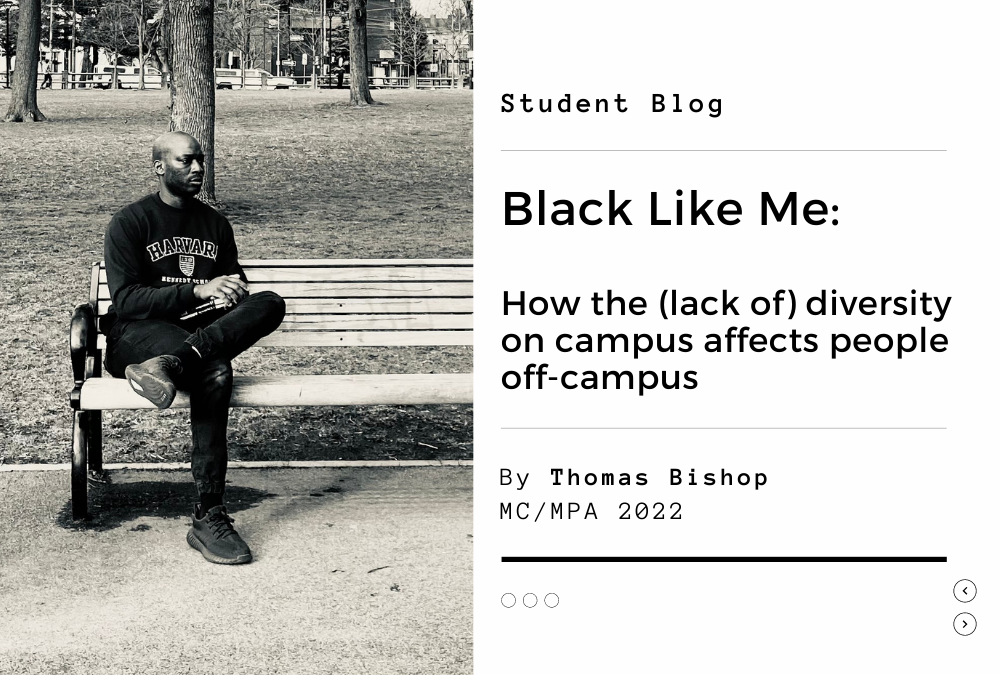As I sat reading a book on a park bench in Cambridge Commons, a beautiful green space outside of Harvard University’s campus, a man experiencing homelessness began walking toward me, looking quizzically. He sat on the bench next to me and asked, “Do you go to Harvard?” I told him that I do. He explained that he had never met a Black American who attended Harvard. He had seen African students, Black Europeans, and Black students from the Caribbean, but never a Black American.
We talked for three hours.
His name was Phillip, and he was born and raised in Philadelphia. As we talked, it was clear that we shared little in common in our everyday lives. Phillip was a houseless man from a privileged Pennsylvania family, but he had spent years struggling with substance use, infrequent work, and shelter insecurity. I grew up in a poor family in Arkansas with no father but have been privileged to live a stable life since joining the Army at 17. We did, however, share one commonality that transcended those differences. He was Black, like me.

Phillip’s initial question identified a problem with how we count people of color at colleges. Harvard boasts its diversity metrics as better than other Ivy League universities. However, there are very few Black American students represented in those numbers. A 2021 study found that Ivy League universities like Harvard admitted Black students with immigrant backgrounds at a higher rate “than Black native students in order to achieve institutional diversity goals, contributing to the underrepresentation of Black native students on campus.” This translates to a much lower number of what journalist and Harvard Fellow Trymaine Lee described as “Generational African American” students, Black American students who are descended from American slaves. Lee estimated the percentage of Generationally African Americans at Harvard to be one-third of all Black students on campus.
Phillip didn’t need a study to tell him this.
My conversation with Phillip helped me understand that I shared more with him than I did with most students at Harvard. Phillip, like me, was used to being overlooked by affluent liberals in academia. He was used to being a project and not a person. He, like me, had traveled the world. As a member of the Merchant Marines. He suffered the same types of discrimination that I suffered in Europe. He too, experienced war overseas in the name of America only to come back to a country oblivious to the suffering of darker people at home.
We talked about Black intellectualism. He asked me what it felt like being Black at Harvard and before I could get the words out, we both said, “it’s a burden.” The burden of needing to do something for Black people with our talents. The burden of having to always be better than the people around you. The burden that James Baldwin described when he said, “To be a Negro in this country and to be relatively conscious is to be in a state of rage almost, almost all of the time.”
Phillip’s rage and PTSD sent him to the streets. Mine sent me into the military. Our circumstances could have pushed us in either direction. Our rage brought us together on a park bench sharing our collective sadness of being Black and feeling alone. Being Black and feeling alone is how being Black at Harvard feels.
We continued talking. He explained that he needed to leave to make it to his shelter before they closed the doors. But we just continued talking, like brothers who had not seen one another in years.
The conversation was easy. I didn’t have to worry whether he understood my colloquialisms or if he knew the same Black history I knew. I wasn’t talking to a stranger. I was talking to a Black American. We can never be strangers. The history of our ancestors are intertwined. We both understood that our individual circumstances could never be divorced from the history of what happened to those who came before us. When I reminded him that he needed to get to the shelter. He simply smiled and responded, “I’ve slept outside before,” and continued talking well after the shelter doors were closed.
When our conversation was over, we shook hands and wished each other well. Phillip never asked me for a place to stay that night. He never asked me for money. He only wanted confirmation that someone like him could get into Harvard. He only asked that someone take the time to see him as a person. He simply wanted to talk to someone who saw him for who he really is. Black, like me.
That is the importance of diversity on campus. Seeing ourselves on campus matters. It matters to the students, it matters to our families, and it matters to the greater community.
